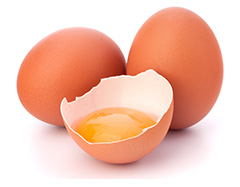
– as we make it in the body rather than absorb it from our diet.
It is vitally important for endurance athletes.
Vitamin D is essential for many functions in the body as nearly every tissue and cell type have Vitamin D receptors – meaning high levels are needed for optimal health.
A major function of Vitamin D is its role in helping the body absorb calcium. If Vitamin D levels are low, it will result in soft bones. This could result in skeletal deformities or osteoporosis. Most people are very aware that you need adequate calcium in the diet for strong bones and teeth, however without adequate Vitamin D, the calcium cannot be used appropriately.
Many symptoms are subtle, and often people with low Vitamin D levels are unaware. A simple blood test is the best and most effective way to check your Vitamin D status. The most common deficiency symptoms are: muscle/joint pain and weakness, fatigue, poor immune system, and asthma in children, and depression.
Unfortunately spending time in the sun is not a guarantee of adequate Vitamin D levels, researchers are still unsure on the exact mechanism of Vitamin D production. Some people are able to maintain good levels with a small amount of sunlight exposure, others it doesn’t seem to be as effective. People with darker skin are at a higher risk of deficiency. Some food sources that may contribute to Vitamin D production are fish oils, egg yolks and beef liver.
Maintaining adequate Vitamin D levels are essential for athletes as it is an established factor in preventing stress fractures and optimising bone health. It also aids the regulation of electrolytes, protein synthesis and strong immune function – all vital functions for an endurance athlete.
I strongly recommend to all of my clients to have a routine Vitamin D test to determine if they are at risk of deficiency. Supplementing with Vitamin D is a simple and cost effective option for those at risk.
Recent research has been focussed on Vitamin D’s role in conditions such as diabetes, hypertension, multiple sclerosis and cancer. It has also being linked to assisting with weight-loss. We still have so much to learn about this crucial nutrient.
If you would like more information on Vitamin D, or assistance with any area of nutrition, please call me to organise a personal consultation.
Tamara Madden, Nutritionist at Mad on Nutrition, Ph: 0407 509683.

